Major museum postpones Islamic exhibit over fears of ‘unintended insensitivity’ after Israel attacks
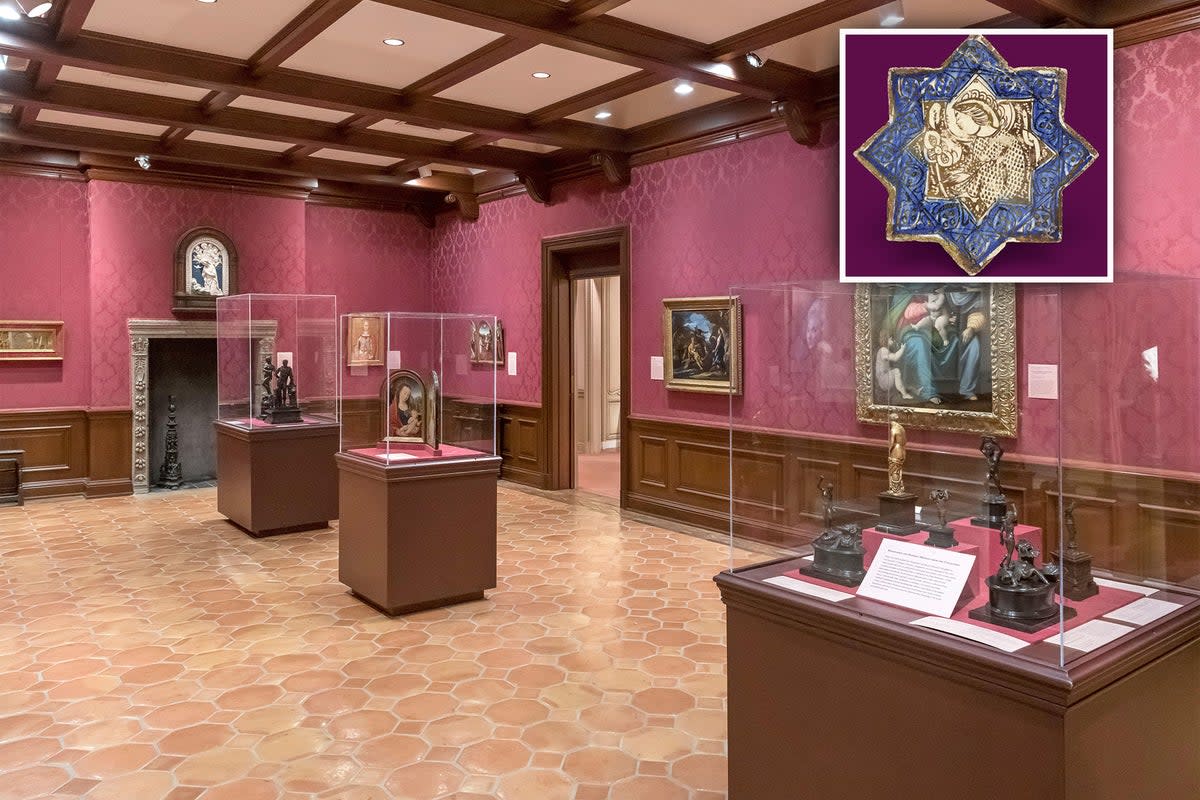
- Oops!Something went wrong.Please try again later.
When it was announced early last month, “Treasured Ornament: 10 Centuries of Islamic Art” promised an exhibit that evoked “the rich history of the Islamic world, and the shared human experiences that bind us, transcending borders and boundaries”.
The exhibit at the Frick Pittsburgh museum was set to open on Saturday 4 November. But, in the days after Hamas’s 7 October attacks in Israel, Israel’s siege of Gaza and a bombardment campaign that has killed thousands of Palestinians, the museum quietly decided to postpone the opening.
First, the museum blamed a “scheduling conflict” for the cancellation. But it followed up with a later announcement that linked the decision to the conflict between Israel and Hamas, explaining that “it would have been impossible to predict that war would erupt in the Middle East” during the show.
In a statement shared with The Independent, the museum said running the exhibit “risked trivialising Islamic culture at an extraordinarily complex time” and could be a source of “unintended insensitivity or offense” and a “distraction”.
Frick’s decision is part of a wider wave of censorship targeting pro-Palestinian and Muslim content in art institutions and media in the wake of Hamas attacks, including the cancellation of a museum event featuring a Palestinian artist in Ohio, the cancellation of a commissioned artwork in Manhattan that included a Palestinian flag, and the firing of a respected editor at Artforum, an international art magazine, after it published an open letter signed by thousands of artists demanding a ceasefire in Gaza.
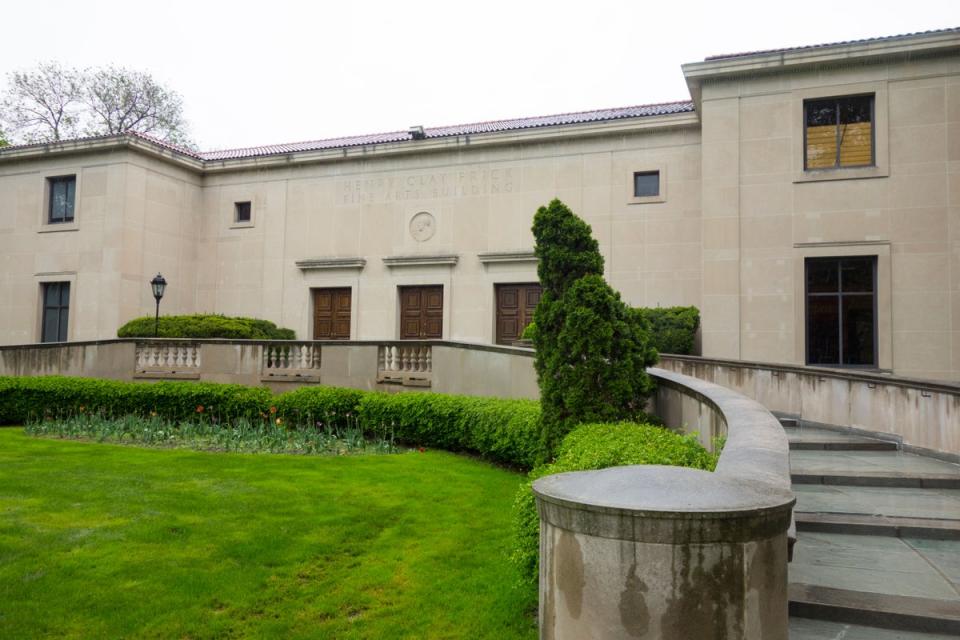
‘A source of unintended insensitivity’
The Pittsburgh museum’s move has alarmed civil rights groups and advocates who fear it wrongly conflates Islam with terrorism and antisemitism. “This false perspective not only disregards the vast and diverse Islamic world that extends far beyond the Middle East but also undermines the essence of cultural diversity and appreciation that art represents,” according to Christine Mohamed, of the Pittsburgh chapter of the Council on American-Islamic Relations, the nation’s largest Muslim civil rights group.
The exhibit included art from the 19th century or earlier, none of which referenced the current conflict or the humanitarian crisis.
But according to the museum itself, the exhibit “lacked sufficient historical and cultural context” as well as “participation from the regional Islamic community and others”. It said presenting the show risked “turning an intended educational opportunity into a divisive political touchstone, a source of unintended insensitivity or offense, and a distraction from our important service to the entire community.”
“It is simply wrong to suggest this decision was in any way political or reflects a singular viewpoint,” the museum added. West Virginia’s Huntington Museum of Art organised the exhibit, which is on tour with International Arts & Artists from Washington DC. Neither organization has yet responded to The Independent’s request for comment.
A decision to pull the exhibit also comes in the middle of the fifth anniversary of an antisemitic mass shooting at Pittsburgh’s Tree of Life Synagogue, in which 11 people were fatally shot during Shabbat services. Museum officials were not aware of any objections to the “Treasured Ornament” exhibit from Jewish organisations.
“Equating Islamic art and Muslims in general with Hamas is certainly bias[ed] and is certainly something we’re against,” Adam Hertzman, of the Jewish Federation of Greater Pittsburgh, told Pittsburgh’s NPR affiliate. “I believe that few people in the Jewish community would have been concerned about an exhibit on Islamic art because we understand that has nothing to do with Hamas, which is a terrorist organisation.”
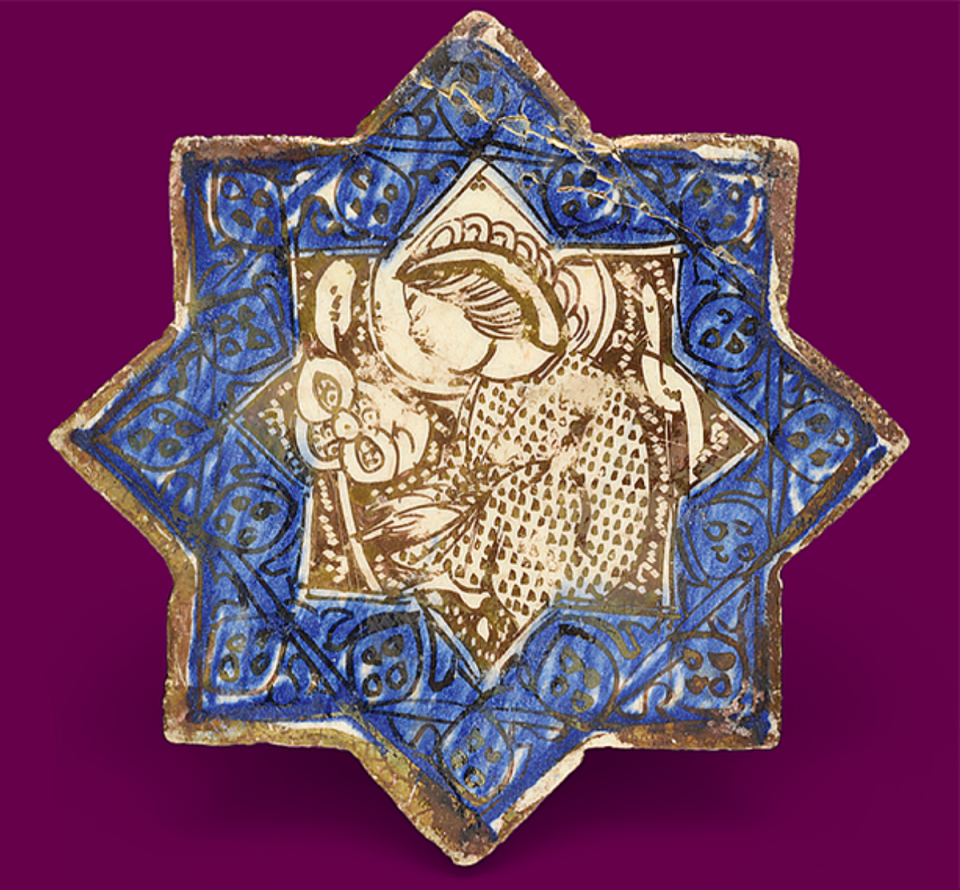
‘His firing is unacceptable’
Artforum fired its editor David Velasco on 26 October after the publication of a letter with more than 8,000 signatories calling for “an end to the killing and harming of all civilians, an immediate ceasefire, the passage of humanitarian aid into Gaza, and the end of the complicity of our governing bodies in grave human rights violations and war crimes.” Artforum’s publishers determined that the letter failed to meet its editorial standards.
Shortly after Velasco was removed, senior editors Zack Hatfield and Chloe Wyma and editor Kate Sutton announced they were leaving the magazine.
“The firing of David Velasco violates everything I had cherished about the magazine and makes my work there untenable,” Ms Wyma wrote. Mr Hatfield said his firing “bodes ominously for the future of the magazine.”
Critics condemned the letter’s failure to mention the Hamas attack that killed 1,400, though an updated version of the statement repeated the signatories’ condemnation of “violence against all civilians, regardless of their identity” and expressed their “revulsion at the horrific massacres” of 7 October.
A group of gallerists and art dealers reportedly launched a pressure campaign to force some of the names on the open letter to retract their support.
One letter in response, from three influential artworld figures – Dominique Levy, Brett Gorvy and Amalia Dayan – condemned the open letter for its “one-sided view.” Another called the open letter “uninformed” and said it was “signed by artists who do not represent the artistic community at large”.
Mr Velasco and Penske Media Corporation, the publishing behemoth which owns Artforum,Variety and Rolling Stone, among more than a dozen other titles, have also been contacted for comment.
Jace Clayton, author of Uproot: Travels in 21st Century Music and Digital Culture, said he had pulled an upcoming piece from Artforum’s December issue after the “unacceptable” dismissal of Mr Velasco.
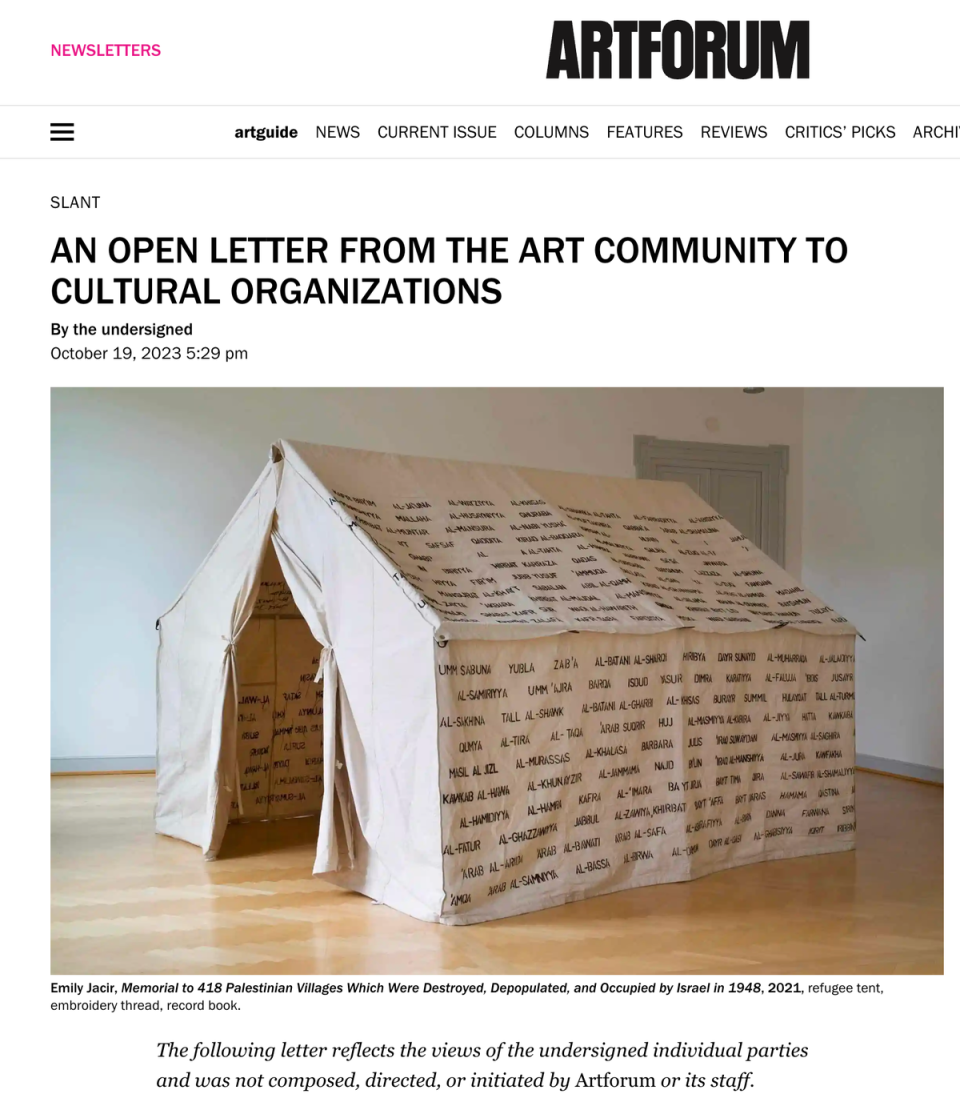
“By firing him, Penske Media sent a clear message that they don’t care about critical integrity. I got the message, and pulled my piece,” he told The Independent.
“The warning flags went up when Penske purchased the magazine last year,” he added. “Corporate consolidation has a chilling effect on cultural exchange and is intrinsically hostile towards any meaningful diversity.”
More than 300 people have since joined a boycott pledging to stop working with Penske titles following the “alleged interference with the editorial independence of Artforum”.
Among the writers and artists who signed the call for editorial independence after Mr Velasco’s termination: celebrated American photographer Nan Goldin.
“I have never lived through a more chilling period,” she told The New York Times. “People are being blacklisted. People are losing their jobs.”
‘A smear campaign ensued’
Palestinian artist Jumana Manna, who grew up in Jerusalem and now lives in Berlin, said she has already lost opportunities after a social media post about her solidarity with the Palestinian struggle was interpreted by others as her cheering on Israeli civilian deaths.
Ms Manna posted on her Instagram story the words “long live the creativity of resistance” over a photo shared by human rights activist Mona Seif of Hamas fighters paragliding into Israel on 7 October.
Her post was picked up by media outlets and social media accounts, with calls from institutions to boycott her.
In a column published in Hyperallergic on 1 November, she said her post, which she’d done before the full horrors of the attacks against civilians were clear, was taken out of context by “bad-faith” media outlets. “A smear campaign ensued, magnified by vindictive trolling that exaggerated and distorted my comments,” she added.
Ms Manna, who signed the open letter published in Artforum, was scheduled to speak on a panel at the Wexner Center for the Arts at Ohio State University on 14 November. The museum’s discussions around “The Creative Future of Food” has now been cancelled.
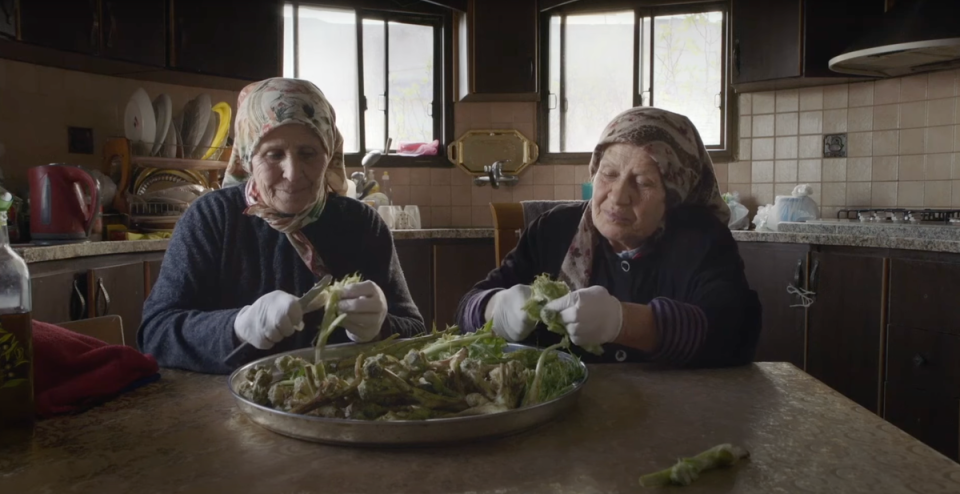
“Given the expectation that the dialogue would include discussion of a region of the world that is now experiencing war, we did not feel it is an appropriate time to have a conversation about food sustainability with panelists who have expertise on this topic,” according to a statement from a Wexler spokesperson provided to The Independent.
Several art collectors reportedly pushed Wexner to shut down the exhibit entirely. Her exhibit “Break, Take, Erase, Tally” – currently on display at Wexner – includes her 2022 film Foragers, which explores the Palestinian practice of foraging wild plants. Wexler confirmed that Ms Manna’s exhibit will remain open through 30 December.
“International institutions that have worked with me in the past or present are being harassed and pressured,” she wrote in Hyperallergic, pointing to cancellations and pressure surrounding exhibits and artists who voiced support for Palestinians during Israel’s bombardments.
“I am not the only one,” Ms Manna added. “Across Europe and the United States, numerous cultural workers who identify with the Palestinian struggle have been systematically targeted, publicly defamed, sacked, or disinvited in what can only be described as an embargo on empathy for Palestinians.”

